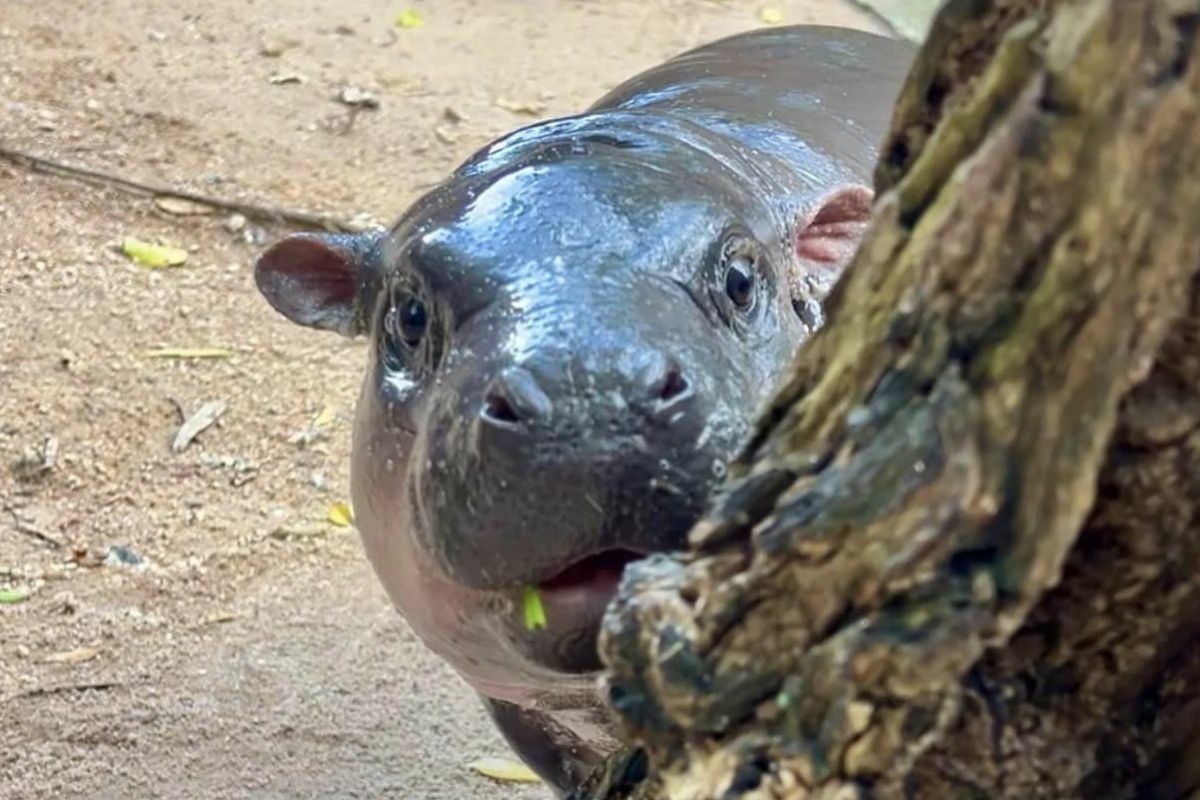Hippo hullabaloo: TSPCA roars back at PETA over moo deng controversy

The Thai Society for the Prevention of Cruelty to Animals (TSPCA) hit back at the People for the Ethical Treatment of Animals (PETA), accusing them of using outdated and inaccurate information in their boycott campaign to save wildlife. The controversy centres around the world-famous pygmy hippo, Moo Deng.
Moo Deng, a pygmy hippopotamus at Khao Kheow Open Zoo in Chon Buri province, has become a global sensation. The zoo’s new superstar has helped pull it out of financial straits, attracting over 10,000 visitors daily and forming long queues at her enclosure, especially on weekends.
Despite the wave of adoration from animal lovers eager to see Moo Deng, a storm of criticism has erupted. Wildlife activists and social media influencers are up in arms, condemning the zoo’s practices. They argue that keeping Moo Deng in captivity and parading her before massive crowds amounts to animal abuse.
PETA also voiced its concerns on September 20. Jason Baker, Senior Vice President of PETA, stated on the organisation’s official Facebook page, PETA Asia…
“There’s nothing cute about a baby being born in captivity. Hippos belong in the wild but Moo Deng will never live outside a cage. She faces a lifetime of confinement, deprived of her freedom and the opportunity to experience her natural habitat and the social structures of her species.”
Baker also emphasised that wildlife is not meant for human entertainment and urged the zoo to end this cruel cycle. PETA has offered its support in relocating Moo Deng to a wildlife sanctuary.
The zoo’s director, Narongwit Chodchoi, insisted that the zoo cares for over 2,000 animals, all of which receive the best care, ensuring their welfare and quality of life. Regarding Moo Deng, the zoo has taken steps to manage the situation, limiting visitor numbers to 30 to 50 people per round, with each round lasting about five minutes, to avoid overcrowding.
Thais disagree with PETA
However, many Thai netizens expressed their disagreement in the comments under PETA’s post.
“The pygmy hippo is considered an endangered species due to threats like deforestation and hunting for meat and skin. It’s listed as endangered.”
“So, does that mean animals in zoos all over the world should be released?”
“Moo Deng’s mother lives in a zoo. How could she be born in the wild? If zoo animals aren’t for people to see, are we just going to let them roam freely? This idea doesn’t make sense. If so, then all wild animals in zoos worldwide should be released, not just Moo Deng.”
Sathit Pratchaya-ariyakun, Secretary of the TSPCA, yesterday, September 30, responded to PETA’s statement, suggesting that the organisation may not have all the facts about Moo Deng and was relying on outdated wildlife protection campaigns that involve boycotting countries.
Sathit pointed out that Thailand’s coconut industry suffered greatly from a previous PETA boycott. He acknowledged that some of PETA’s information was valid and useful but stressed that certain details were incomplete and came from only one side of the story.
He called for a respectful dialogue, where all parties listen to each other and resolve issues where necessary while giving the chance to clarify any misunderstandings.
Sathit reassured the public that Moo Deng’s care meets international standards, overseen by staff at Khao Kheow Open Zoo, which is accredited by the World Association of Zoos and Aquariums (WAZA) and operates in compliance with the Prevention of Cruelty to Animals and Animal Welfare Act.
He concluded by encouraging zookeepers and other staff at the zoo to continue their good work but advised them to minimise physical contact with Moo Deng, as it might be seen as inappropriate by some observers.
Latest Thailand News
Follow The Thaiger on Google News:


























